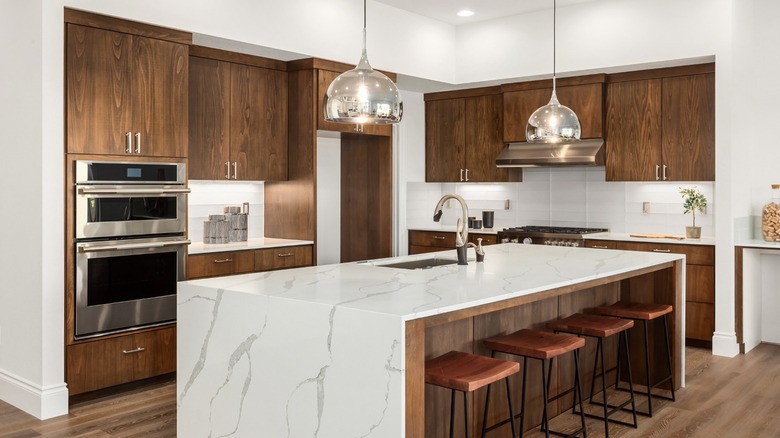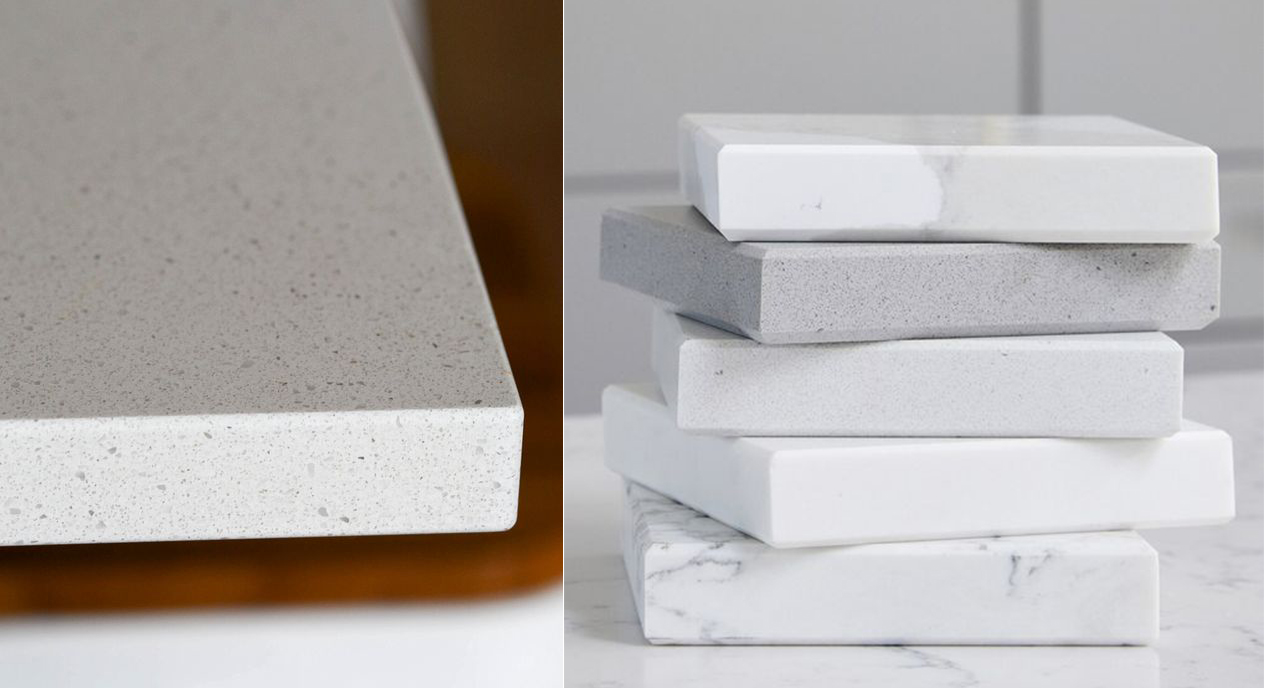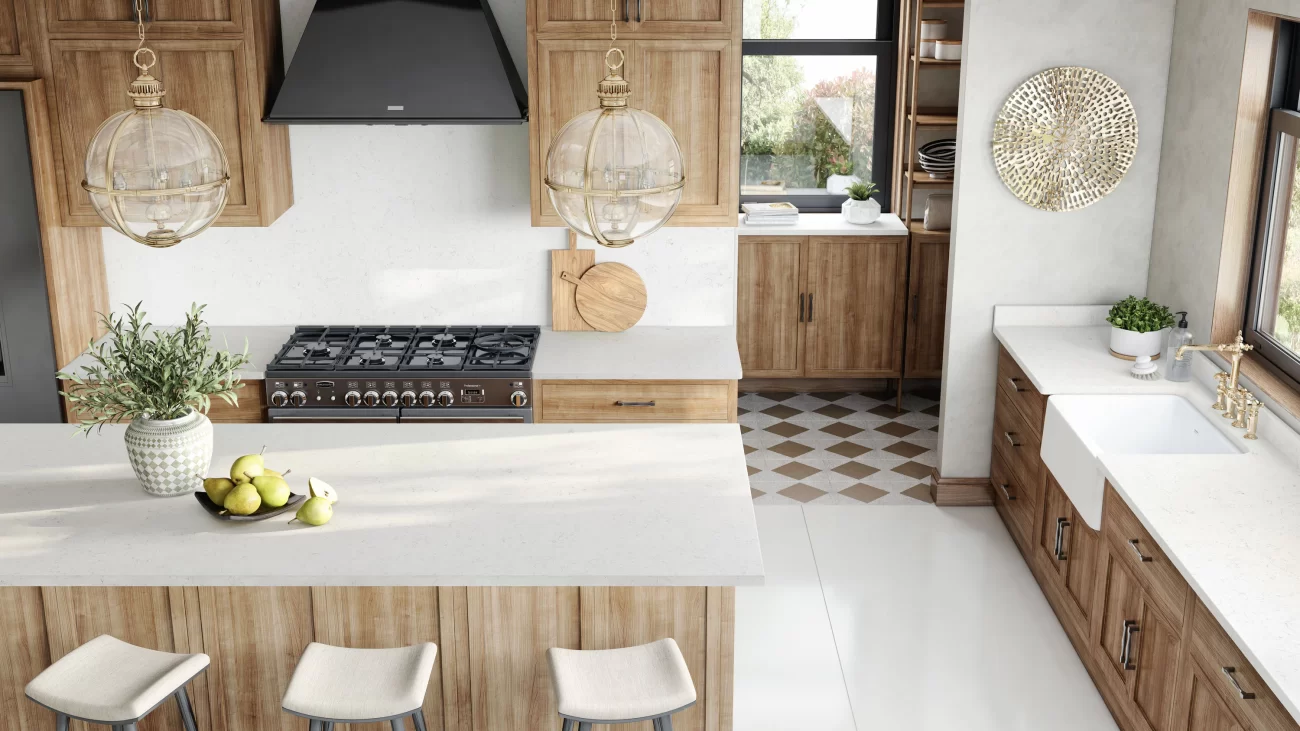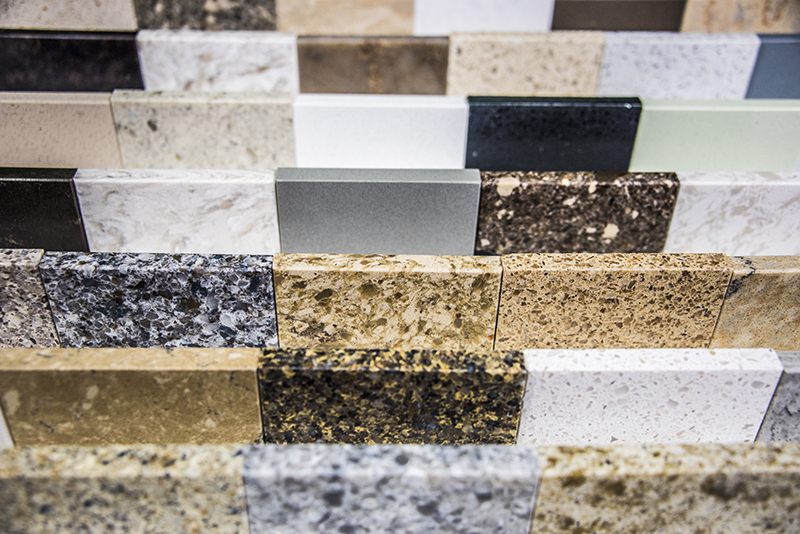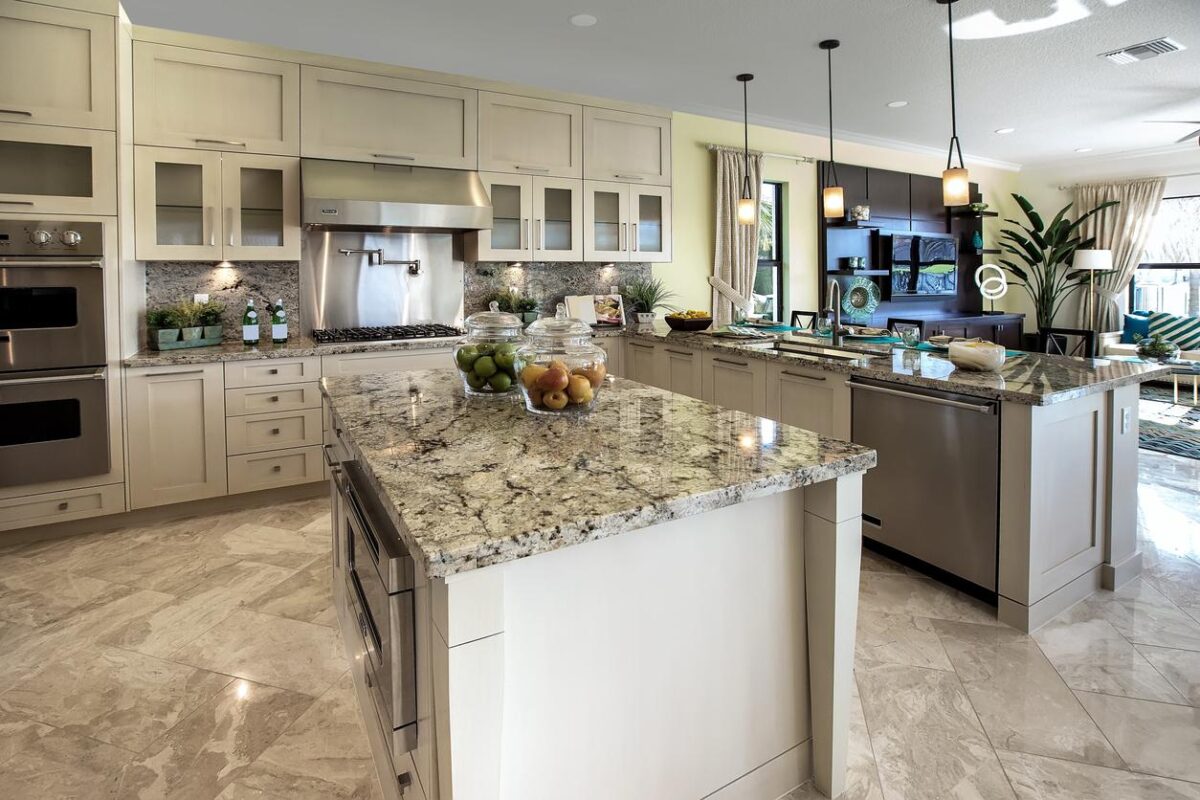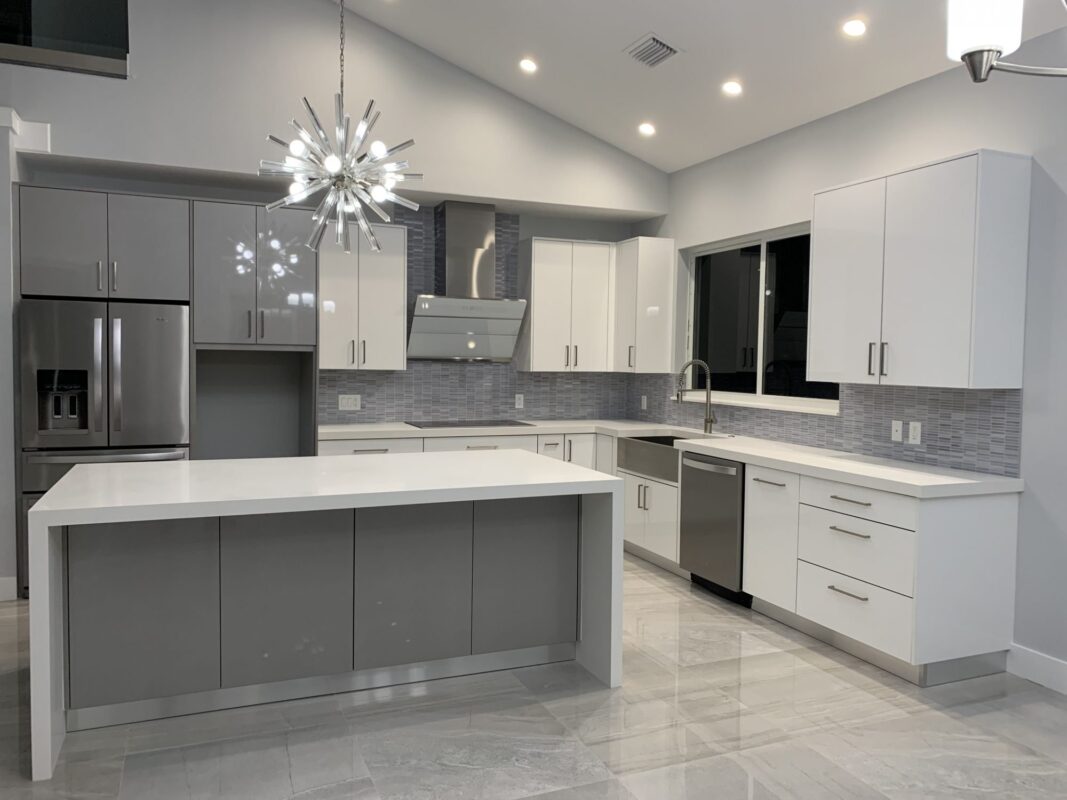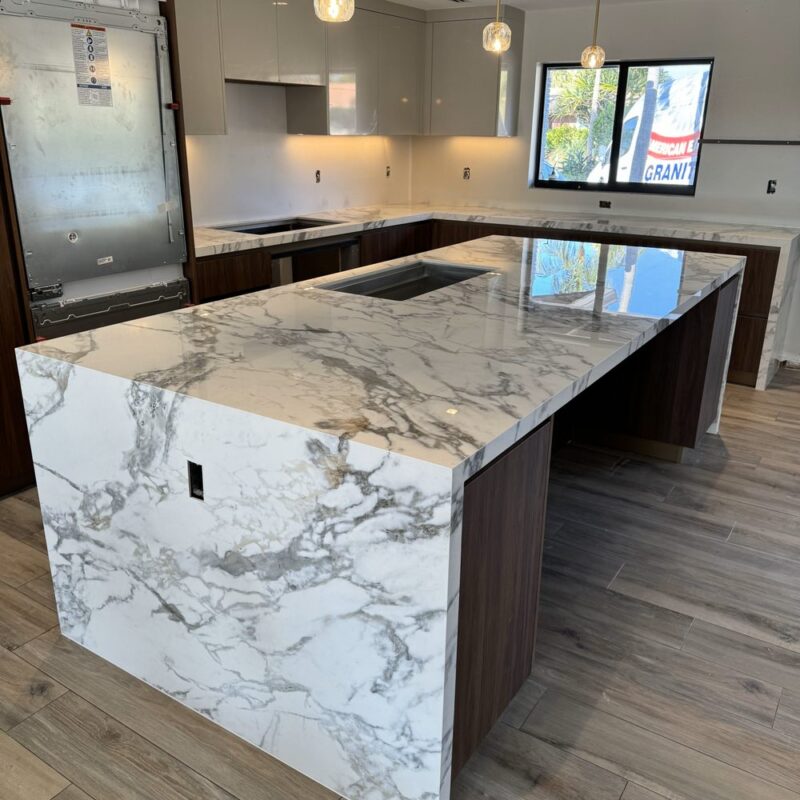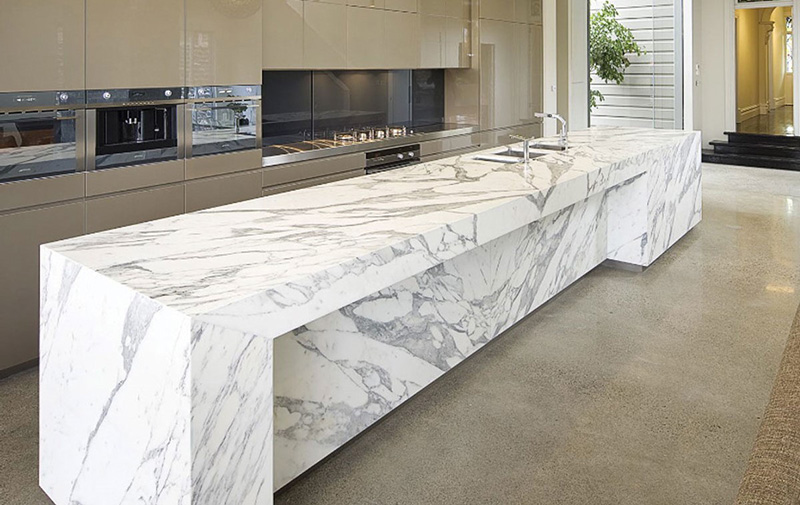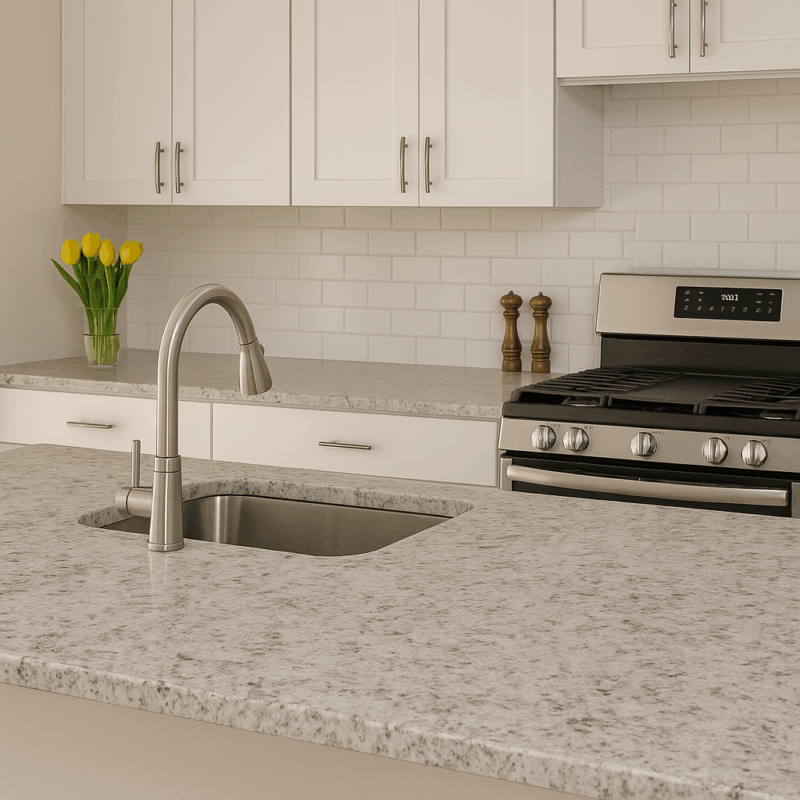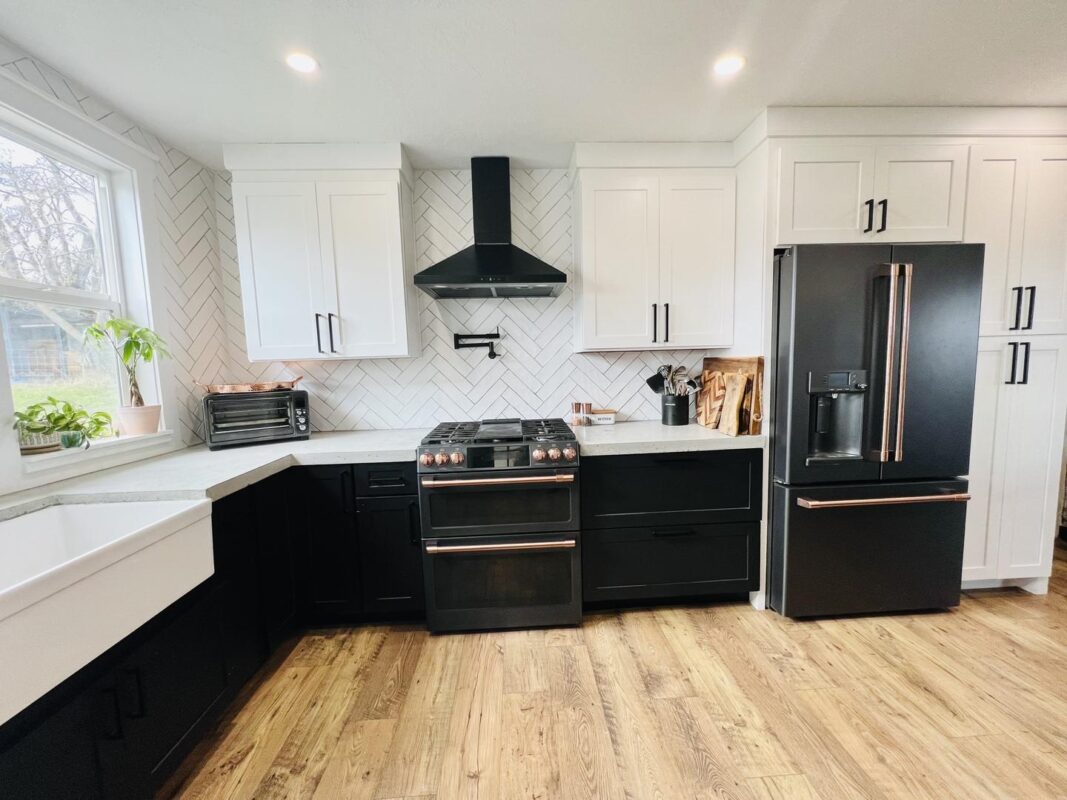Introduction
When it comes to designing or remodeling your kitchen, selecting the right materials for your countertops is a crucial decision. Quartz countertops have become a popular choice due to their stunning aesthetics, durability, and low maintenance. However, one question often arises: how thick should your quartz countertops be? In this article, we’ll explore the importance of quartz countertop thickness and provide valuable insights to help you make an informed decision.
Understanding Quartz Countertops
Composition
Quartz countertops are engineered stone surfaces made from 90-95% crushed natural quartz crystals, combined with resins, polymers, and pigments. This combination creates a strong and beautiful countertop that is resistant to stains and scratches.
Advantages
Quartz countertops offer several advantages, such as resistance to heat, staining, and chipping. They are also available in various colors and patterns, mimicking the appearance of natural stone.
Varieties
You can find quartz countertops in various designs, from solid colors to intricate patterns that resemble marble or granite. This wide range of choices allows you to match your countertops with your kitchen’s aesthetics.
The Importance of Thickness
The thickness of your quartz countertops in Hialeah or Pompano Beach plays a significant role in both functionality and aesthetics.
Aesthetics
The thickness of your countertops can greatly impact the overall look of your kitchen. Thicker slabs tend to have a more substantial and luxurious appearance, making them a great choice for kitchens with a contemporary or upscale design.
Durability
Thicker quartz countertops are more durable, as they are less prone to chipping or cracking. This added thickness can withstand the rigors of daily kitchen activities and the occasional impact.
Cost
It’s essential to consider your budget when choosing the thickness of your quartz countertops. Thicker slabs tend to be more expensive due to the additional material used, but they also offer enhanced durability.
Standard Thickness Options
Quartz countertops come in various thickness options, with the most common ones being:
1 cm
This is the thinnest option available. It’s best suited for vertical applications like backsplashes and wall cladding.
2 cm
A popular choice for countertops, 2 cm quartz offers a balance between aesthetics and cost-effectiveness.
3 cm
The thickest option, 3 cm quartz, is ideal for those who want the ultimate durability and a bold, luxurious appearance for their kitchen countertops.
Factors Influencing Thickness Choice
When selecting the thickness of your quartz countertops, consider the following factors:
Kitchen Style
The style of your kitchen is a significant factor. Thicker countertops work well in modern and luxurious kitchen designs, while thinner options can complement more traditional or minimalist aesthetics.
Personal Preference
Your personal preference and how you use your kitchen should guide your choice. If you cook and entertain frequently, a thicker countertop may be more suitable.
Measuring for Quartz Thickness
Before making a decision, measure the available space and assess your specific needs. This will help you determine the right thickness for your quartz countertops.
Maintenance and Cleaning
Regardless of the thickness you choose, quartz countertops are relatively low-maintenance. Regular cleaning with mild soap and water is usually sufficient to keep them looking beautiful.
Choosing the Right Thickness for You
Comparing Options
Compare the advantages and disadvantages of the different thickness options to find the one that best suits your kitchen and lifestyle.
Practical Considerations
Consider your budget, kitchen style, and intended use to make an informed decision about the thickness of your quartz countertops.
Conclusion
The thickness of quartz countertops is a critical consideration in kitchen design. It influences not only the aesthetics but also the durability and cost of your countertops. By assessing your needs and preferences, you can make an informed decision that will enhance the beauty and functionality of your kitchen.
quartz countertops offer a compelling choice for your kitchen and bathroom spaces. Their durability, aesthetics, and eco-friendly features make them a top contender in the world of countertop materials. When you’re ready to transform your space, use the provided guidelines to find quartz countertops near me and make an informed decision. Get started on your countertop upgrade and enjoy the benefits of this stunning, low-maintenance surface.
FAQs
- Is 3 cm quartz worth the extra cost?
While 3 cm quartz is more expensive, it offers superior durability and a luxurious appearance, making it a worthwhile investment for those seeking long-lasting, high-end countertops.
- Can I install 1 cm quartz for my kitchen countertops?
1 cm quartz is better suited for vertical applications like backsplashes or wall cladding. It’s not the ideal choice for kitchen countertops due to its lack of thickness and durability.
- How do I measure for the right quartz thickness in my kitchen?
Measure the available space and consider your kitchen style and usage. Thicker countertops are suitable for modern, high-traffic kitchens, while thinner options work well in more traditional settings.
- Are there special cleaning requirements for thicker quartz countertops?
Thicker quartz countertops do not require any special cleaning. Regular maintenance with mild soap and water is sufficient to keep them looking their best.
- Can I change the thickness of my existing quartz countertops?
It’s challenging and costly to change the thickness of existing countertops. It’s typically more practical to choose the right thickness when initially installing them.


